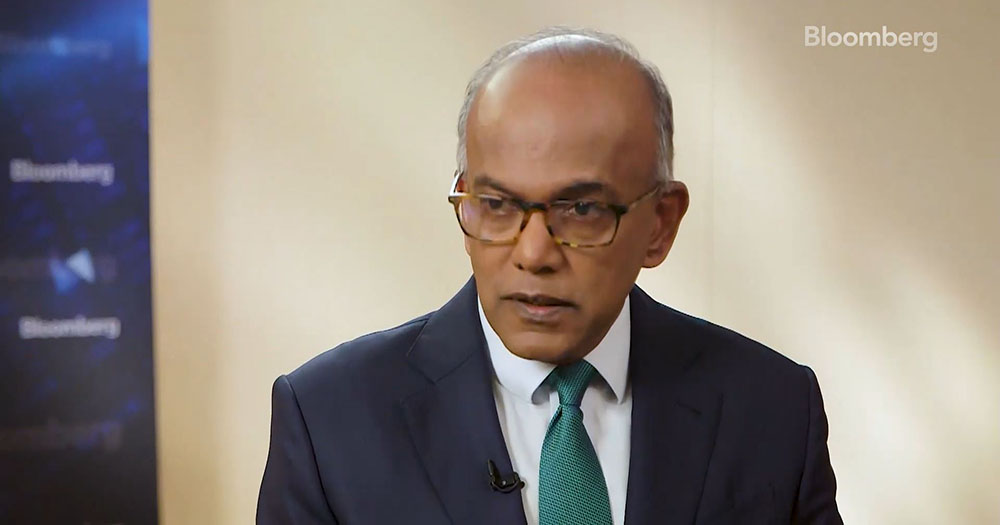Follow us on Telegram for the latest updates: https://t.me/mothershipsg
Singapore might pass laws against "cancel culture", Home Affairs and Law Minister K Shanmugam said in an interview with Bloomberg journalist Haslinda Amin.
Concerns have been raised about online attacks over LGBTQ rights
The minister was responding to a question about opposition by religious groups over the repeal of Section 377A, as well their concerns about how they might be attacked for the views they hold against the LGBTQ community and the equality of marriage.
Shanmugam replied that cancel culture was a matter of concern, not just in the context of Section 377A or sexual mores, but on a wide variety of issues.
"People's freedom to express their views is curtailed in real life, in the physical world, we won't allow five people to get up and beat you up. That's against the law. It seems to be possible and it happens in a virtual sense on the internet.
So these are not easy questions, but these are questions that we have been studying for some time. And we find the right solutions? Yes, that should be something that we could see in legislation."
He added that the government has been told by both religious and LGBTQ groups that they have been attacked online over LGBTQ rights.
He was further quoted as saying, "Religious groups, in particular, feel very put upon because they feel whenever they express their views they are attacked as homophobes."
Shanmugam also said, "So there is a line between expressing your view on religion and becoming homophobic or engaging in hate speech against LGBT groups."
Consensus, not culture wars
With regard to the repeal of Section 377A and marriage equality, Shanmugam said that the government was trying to forge as much of a consensus as possible and move forward with a certain level of social harmony following the proposed repeal.
He noted that the overall issue had "torn asunder" the social fabric of many countries, with "culture wars."
As for the definition of marriage, the minister said it is currently defined as between a man and a woman.
Any debate on this definition will be done in Parliament, and not through the courts, he added.
Majority of Singaporeans support the death penalty
Shanmugam also defended the death penalty for major crimes such as drug trafficking, Bloomberg further reported.
The minister highlighted that over 80 per cent of Singaporeans support the death penalty and over 65 per cent support the mandatory death penalty.
The government must therefore "do right" by them.
He said:
"If we believe, and we do, that the death penalty, in fact, saves thousands of lives, because of its deterrent effect. And I can show you examples from all the other countries which don't have the death penalty, and lacks enforcement on drug policy, thousands more people die."
Shanmugam also questioned Bloomberg's rationale in asking about Singapore's stance on the death penalty.
"Because the assumptions, the series of assumptions in your question, there's a lot of talk about this, that there is a significant discourse and that you know, there is a groundswell against the death penalty.
When activists who are against death penalty organise protest, they claim that 400 people turned up. Usually these numbers are exaggerated. But even if we assume it's right, 400 people, what are the facts? more than 80 per cent of Singaporeans support the death penalty."
When asked about Thailand's legalisation of marijuana and its impact for Singaporean authorities, he replied:
"Of course it creates more challenges because the more availability of drugs, the more challenging it is to deal with it. But by and large, the vast majority of Singaporeans understand that drugs are bad for society."
Related stories:
Top image from Bloomberg.
If you like what you read, follow us on Facebook, Instagram, Twitter and Telegram to get the latest updates.
